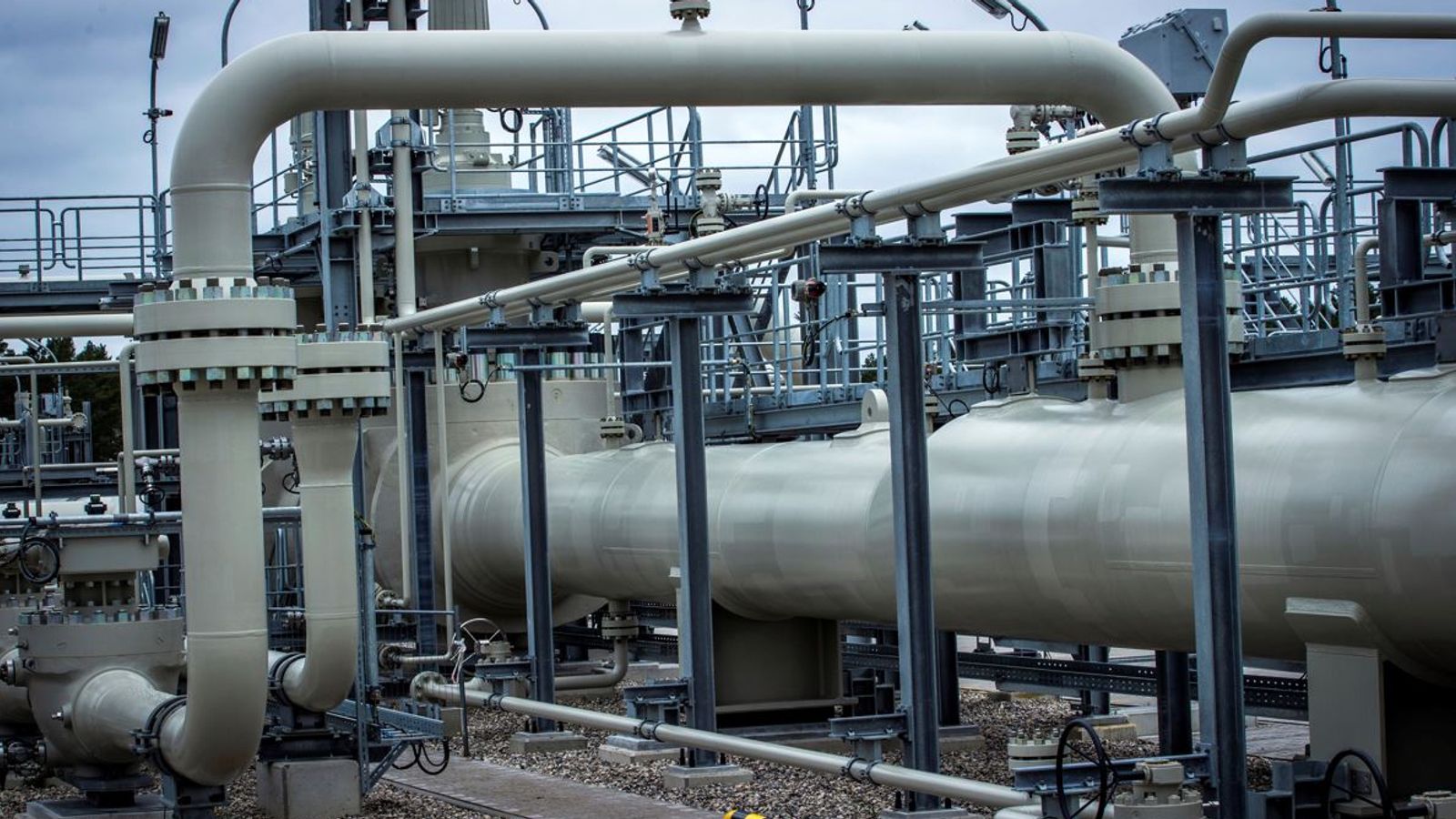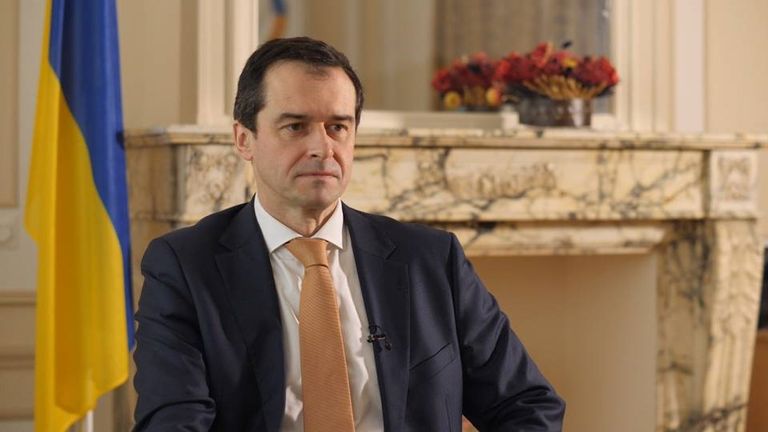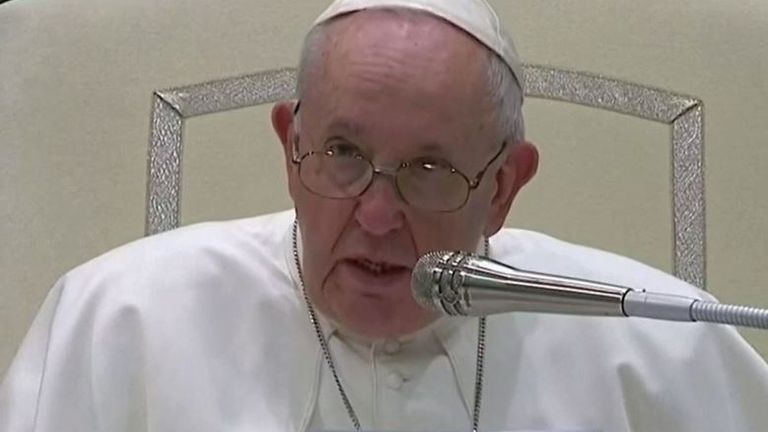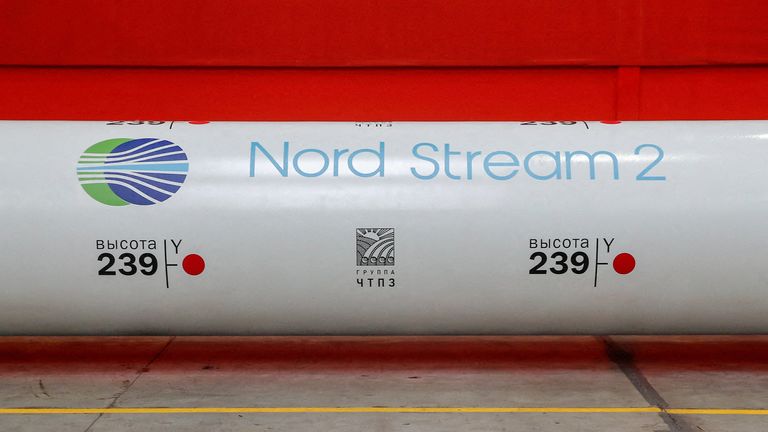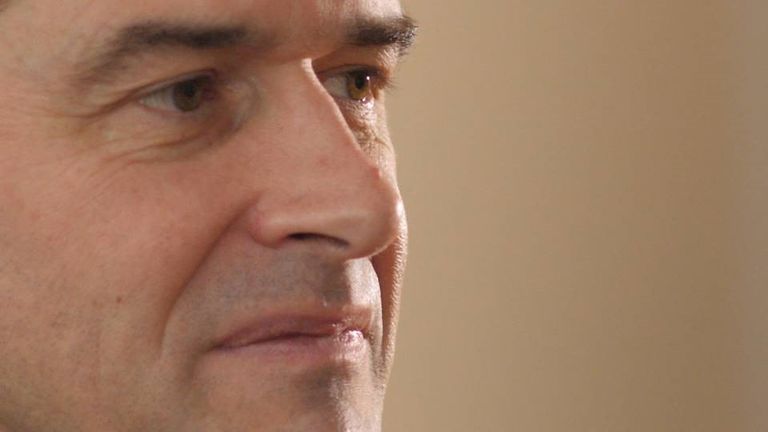Nord Stream 2, the controversial gas pipeline linking Germany and Russia, should never open, according to one of Ukraine’s most senior diplomats.
Vsevolod Chentsov, Ukraine’s ambassador to the European Union, also claims his country is being “pushed towards NATO and towards the West” by the actions of Russia, which he insists is guilty of “breaching international law” through its actions in Ukraine.
In an exclusive interview, Mr Chentsov told me that the EU “could have done more to stop Vladimir Putin and contain Russia” following the illegal annexation of Crimea in 2014, and that his country was pursuing two cases against Russia in the International Court of Justice.
Read more: Truss heads to Moscow and as ambassador says Russia ‘behaving like racketeer’
But it is his comments on Nord Stream that will seem particularly relevant, as talks continue on a sanctions package that, as Mr Chentsov put it, would contain “really painful measures”.
At the top of the list of suggestions sits the gas pipeline, which would provide a huge supply of natural gas to Germany when, and if, it is turned on.
So, I asked him, should Nord Stream 2 ever be switched on. The answer was emphatic.
“Look, the Ukrainian position is very clear. Europe does not need this pipeline, so it is a 100% politically motivated project. If your question is whether this pipeline should be turned on – ever – then our answer is no.
“It cannot be used as a weapon against Ukraine, but also against EU member states because the more leverage that Russia has, the less that Europe is secure.”
Read more: Ukraine – Living on the frontline
Germany’s new Chancellor, Olaf Scholz, was hesitant about committing the pipeline to any sanctions package, leading to questions over his country’s dedication to support Ukraine.
Mr Chentsov says “the position of the German government is evolving” and that Ukraine is “doing our best to explain what we want, and what are Ukrainian concerns”.
Those fears are very real. There are 100,000 Russian troops stationed on the Ukrainian border, supported by the firepower of a military superpower.
But Ukraine’s own armed forces have been cranked up significantly since the 2014 Crimea invasion, and the country’s armed forces number around 250,000, equipped with, among other things, Turkish drones and American Javelin anti-tank missiles.
A land war could be, I suggest, a horrific conflict.
He replies: “Yes indeed, and that is something we try to warn the Russian Federation, and also definitely our friends and partners, that it’s serious – that we are going to defend ourselves, and that we are able to defend Ukraine.
“It’s a different army since 2014 and also it’s a different spirit within the society because people understand they have a country to defend.”
Read more:
British troops prepare for combat in show of NATO firepower aimed at deterring Putin aggression
Putin warns Europe will be dragged into military conflict if Ukraine joins NATO
The more the tension, the greater the momentum pushing Ukraine away from Russia and towards a closer relationship with the West.
“Ukraine is going to build its relations with neighbouring countries, including the European Union,” he says.
“Ukraine is a sovereign country and it’s up to Ukraine to decide how it’s going to defend itself. But Ukraine is being pushed towards NATO, and towards the West in general, by the actions of Russia.”
So would Ukraine join NATO, given the opportunity? He smiles, encouragingly: “For the time being, it’s the most efficient and effective way to defend Ukraine, to join it.”
Similarly, joining the European Union is, he said, “a strategic goal”, not least because of what he sees as the “transformative power” of membership that, he believes, would push a reform programme in Ukraine and push unity in the EU.
That, though, is for the future.
For the moment, his thoughts are on Russian troops and international reaction: “We are concentrating not on guessing and predicting, but on building up active defences, together with our partners like the European Union, the United States and other international partners to avoid this escalation.
“We know that Russia is dangerous.
“Russia is capable of attacking and escalating but it depends on us as to whether we will be able to contain Russia – to demotivate Russia from attacking Ukraine and get back, let’s say, to normal business. To get back to the normal track of development.”
